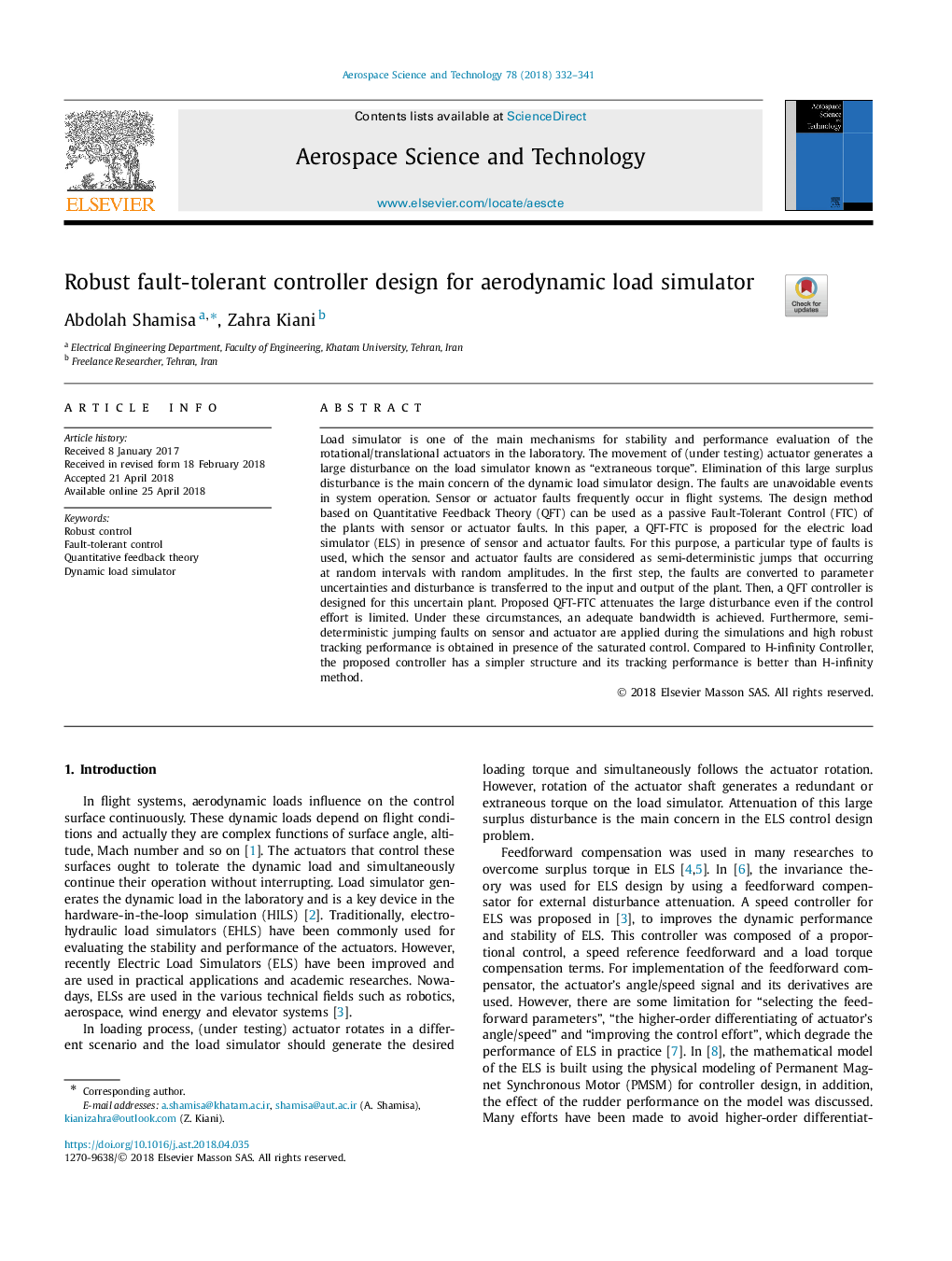| کد مقاله | کد نشریه | سال انتشار | مقاله انگلیسی | نسخه تمام متن |
|---|---|---|---|---|
| 8057519 | 1520056 | 2018 | 10 صفحه PDF | دانلود رایگان |
عنوان انگلیسی مقاله ISI
Robust fault-tolerant controller design for aerodynamic load simulator
ترجمه فارسی عنوان
طراحی مقاوم در برابر خطا مقاوم در برابر شبیه ساز بار آیرودینامیکی
دانلود مقاله + سفارش ترجمه
دانلود مقاله ISI انگلیسی
رایگان برای ایرانیان
کلمات کلیدی
کنترل قوی، کنترل ضعف. تئوری بازخورد کمی شبیه ساز بار شبیه سازی دینامیک،
موضوعات مرتبط
مهندسی و علوم پایه
سایر رشته های مهندسی
مهندسی هوافضا
چکیده انگلیسی
Load simulator is one of the main mechanisms for stability and performance evaluation of the rotational/translational actuators in the laboratory. The movement of (under testing) actuator generates a large disturbance on the load simulator known as “extraneous torque”. Elimination of this large surplus disturbance is the main concern of the dynamic load simulator design. The faults are unavoidable events in system operation. Sensor or actuator faults frequently occur in flight systems. The design method based on Quantitative Feedback Theory (QFT) can be used as a passive Fault-Tolerant Control (FTC) of the plants with sensor or actuator faults. In this paper, a QFT-FTC is proposed for the electric load simulator (ELS) in presence of sensor and actuator faults. For this purpose, a particular type of faults is used, which the sensor and actuator faults are considered as semi-deterministic jumps that occurring at random intervals with random amplitudes. In the first step, the faults are converted to parameter uncertainties and disturbance is transferred to the input and output of the plant. Then, a QFT controller is designed for this uncertain plant. Proposed QFT-FTC attenuates the large disturbance even if the control effort is limited. Under these circumstances, an adequate bandwidth is achieved. Furthermore, semi-deterministic jumping faults on sensor and actuator are applied during the simulations and high robust tracking performance is obtained in presence of the saturated control. Compared to H-infinity Controller, the proposed controller has a simpler structure and its tracking performance is better than H-infinity method.
ناشر
Database: Elsevier - ScienceDirect (ساینس دایرکت)
Journal: Aerospace Science and Technology - Volume 78, July 2018, Pages 332-341
Journal: Aerospace Science and Technology - Volume 78, July 2018, Pages 332-341
نویسندگان
Abdolah Shamisa, Zahra Kiani,
